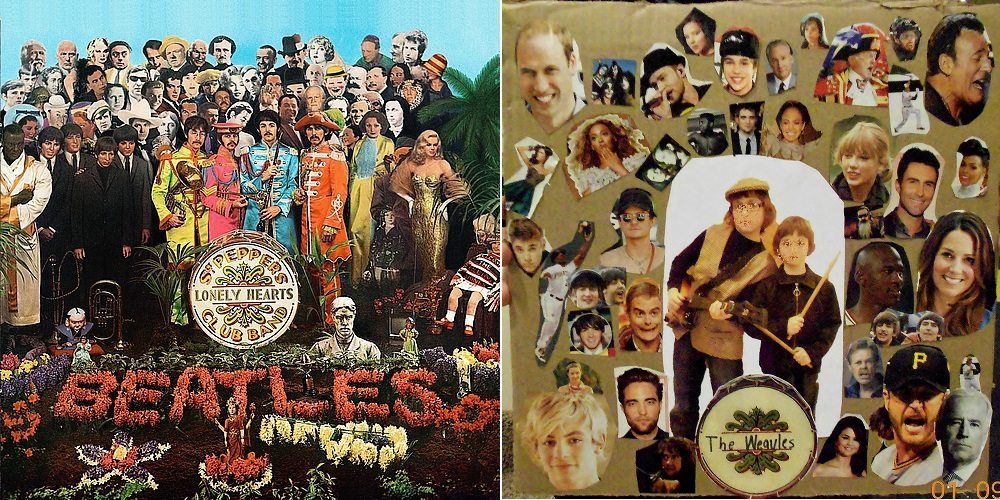Mom life is synonymous with chaos. Magic the Gathering and Dungeons & Dragons have kept me going during this pandemic. It breaks my heart to see a mom’s hobbies fall to the wayside, or not prioritized as self care. In my journey towards self discovery, getting in touch with my hobbies has been vital for my mental health. As an elder millennial, I’ve seen my fair share of global crises from the Twin Towers to now a mass global wide pandemic, and through it all I’ve learned one thing…
Life is too short to not play games.
The biggest issue moms face with gaming comes down to three things: time, investment, and community. It makes sense. You need the capital to invest in random booster packs, or specific cards, you also need the friends, time, and ability to spend hours constructing decks, organizing playtime, and then actually playing. Magic the Gathering has evolved from the in person paper card game into more accessible online options, available through your PC and soon to some mobile devices.
There are two ways to start playing on the internet for free: Magic the Gathering Arena and Magic the Gathering Online.
So what’s the difference?

Affordability
Magic the Gathering Arena brings the ability of Magic, without the need for upfront costs, with the option of in-app purchases. Throughout the tutorial matches, called Color Challenges, you unlock already-constructed decks. Coins allow you to earn free booster packs, and you can trade in Wild Cards from those boosters to craft any card you choose, matching in rarity.
There are five ways to earn cards in Magic the Gathering Arena:
- Coins: Coins can be earned through daily quests. 1,000 coins equals one booster pack. You can expect to earn about 1 booster a day by completing them.
- Experience: Along with Daily Coin Quests, you also earn daily experience points, which earn you a new booster pack every other level, along with extra goodies if you choose to sign up for the battle pass.
- Friday Night Magic: Play against others within a specific theme, such as Artisan. Everyone builds a deck within the theme, and each win (up to two) will earn you a card or two.
- Daily Deals: While most of the daily deals are alternate art versions of cards, every once in a while you’ll find a booster pack in there that you can purchase for coins, or a chance to trade in 50 coins for 500 coins, for example.
- Earn Decks: Along with Coins and Experience, you can earn preconstructed decks to play with. A couple tweaks here and there, and you can rank up pretty easy with an earned free deck.
On the flip side, MtGA is a graphic-heavy program. While there is a mobile version in early release phases, there is a specific list of phones available to run them, which you can find here. So, while it’s free to play, with in-app purchases for extra goodies and tournament settings, it’s possible your current phone isn’t on the list. In order to play MtgA you need a machine to play it, which my ASUS AMD A12 laptop handles just fine.
Magic the Gathering Online is a simpler design, not as graphic-intense, however, the user interface is a little rough at first. A free account in MtGO gives you the new player starter kit, which includes two copies of all common cards and one copy of every uncommon card available for standard play. With a free account, you can access some play options, but to have access to anything other than open play with those cards, you’ll need to invest $4.99 for an upgraded account, which doubles your stock. This upgraded account also comes with access to the store and ability to trade cards.
There is no free way to earn more cards. You can trade cards, or spend real world money on booster packs and preconstructed decks. This is perfect for people who are drawn to the collecting and trading of cards, but maybe have little hands around making it impossible to have the collection in real life.
This set up makes it difficult to enjoy a quick game of magic, as the decks randomization seems to work differently between games. There are no preconstructed decks, or anyway to unlock more cards without participating in the economy. If you’re new to deck building or don’t have the extra funds, this may not work for you. However, deck building is a skill that can be learned. The interface works really well for finding and constructing decks along with having a great categorizing and search system that is a little more sophisticated than MtgA.
I found myself spending more time, and having more fun, putting different decks together using the search UI, than I did playing rounds.

Time
The first few quests in Magic the Gathering Arena put you in battle with non-player characters (NPCs), with the final battle in the color challenge being against another player character (PC). These matches are meant to teach you the mechanics of the game through play, and after each color challenge, you unlock a new mono-colored deck.
Once you’ve made it through the color challenges, MtGA opens up to a whole other set of features you’d expect from a game titled Magic the Gathering Arena. There are multiple modes to play for free, including Friday Night Magic, Standard, Brawl, both ranked and unranked. A match in ranked MtGA can go from 5 minutes, to 30 minutes depending on the deck you’re playing with, and who you’re up against. There are no time limits to matches, however turns can go a minute, before a timer will appear in order to speed up the process. After so many time outs, the game renders the other player non-responsive, and they are kicked from the game.
I found it a lot easier and less time consuming to get started with Magic the Gathering Arena, although there is still my own problem with time dysphoria…
In Magic the Gathering Online, time is a factor in both deck construction and match length. While MtGA hands over some decent preconstructed decks fairly quickly, all the cards you receive in a free account MtgO are in one big set, forcing the player to construct a deck before they even begin playing. This makes MtgO less newb friendly and more of a time sink than MtGA. It’s nearly impossible to take on paid players with a free MtGO account. The matchmaking system doesn’t keep you with other free players, setting you up for failure until you upgrade your account.
For those looking for a space to try out constructed decks in a less competitive setting, look into MtGO. Five dollars isn’t a bad investment to get you going, and the trade system uses bots and real people in order to move cards around, similar to paper cards in shops. The greatest parts about games like Magic the Gathering is there are so many ways to enjoy it.
If your love for Magic lies in the collecting, trading, connecting, and building of cards and decks in Magic the Gathering, then MtGO is a great space for you. It’s calm, it’s low key. It’s slower paced, and allows more room for creativity and strategizing by allowing you to play against the same people over and over again without being “friends” with them. It also means the community is invested in their cards, similar to paper cards, since they can be traded to others creating community between players.

Community
Magic the Gathering has always been synonymous with community. However, finding others who share your love for the card game, and weeding through the gatekeepers, can be difficult. The community is a big factor in my choices of gaming. Feeling safe is important. It’s why I play Final Fantasy XIV instead of other MMORPGs. I love the community.
MtGA is set up for Magic playing. It’s easy to access, easy to get going, and fairly impersonal. Players are represented by avatars, and communication is limited to choice emotes preselected by the programmers. This means bullies can’t say mean things to you, but there can be sarcastic snarky people on the other end of it. The ease of play makes the game more accessible to everyone, however the MtGA environment carries a more competitive ambiance. Between the sound effects of your opponent’s avatar exploding on your win, to the ASMR of clanking swords and stomping giants. I definitely FEEL more competitive when playing MtGA.
There is a friend’s list, and you can play your friends, however MtGA is clearly built for a focus on competitive gaming, and less on making friends that have the same interests as you.
Magic the Gathering Online is a different story however. The ambience is less competitive, and more in line with a casual in person game at your house. In MtGA the programming does a lot of the steps for you, MtGO doesn’t. It’s a much simpler design, putting focus on gameplay and deck construction. You can host a game room, or join one! You can rematch the same players, and even watch others play. It caters to those who want the in person feel, on the interwebs.
Conclusion
Many see Magic the Gathering Arena as the descendent of Magic the Gathering Online, and that may be true with the support MtGA is getting. However they both have their place, and meet different needs of the MtG community.
Looking for a free fast way to try out, or get back into Magic the Gathering without needing extra funds or friends? Arena
Looking for an old school MtG experience focused on constructing decks from scratch, seeing what they can do, while making some friends? Online
Whatever you decide, the goal is to do the things you love while your body is here on this earth. The goal is to create the space for the things that bring you joy. Before you say, but what about the kids? I get it. I do. I have two myself. Another option would be to create an EXTREMELY SMALL parent pod, like the one we created, so the parents can nerd out, and the kids can get social interaction. You can read about our parent pod adventures here and the things that we do to keep our pod safe.
Just make sure to pick your poison before January 28th, so you can take advantage of that sweet sweet Kaldheim pre-release content.




